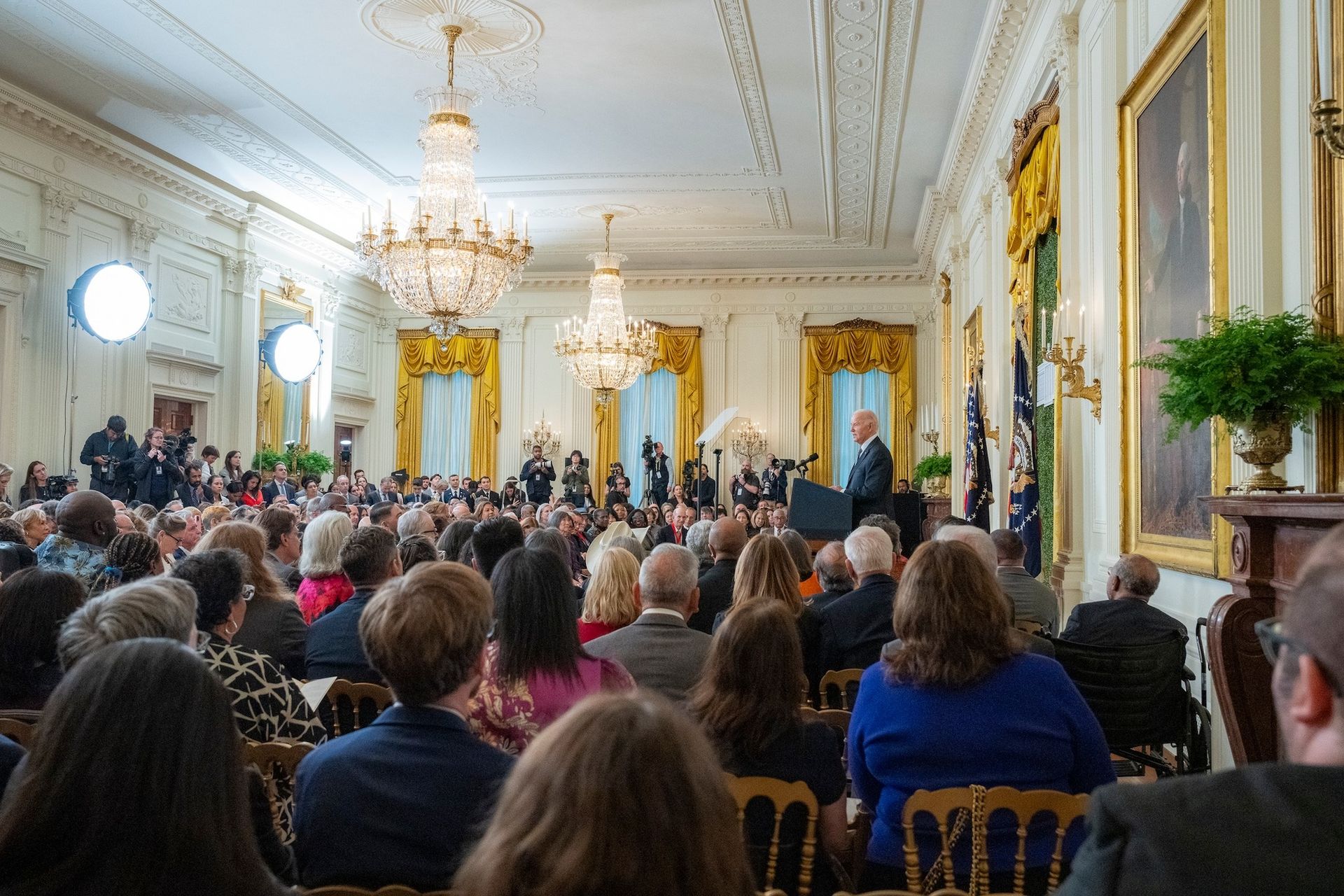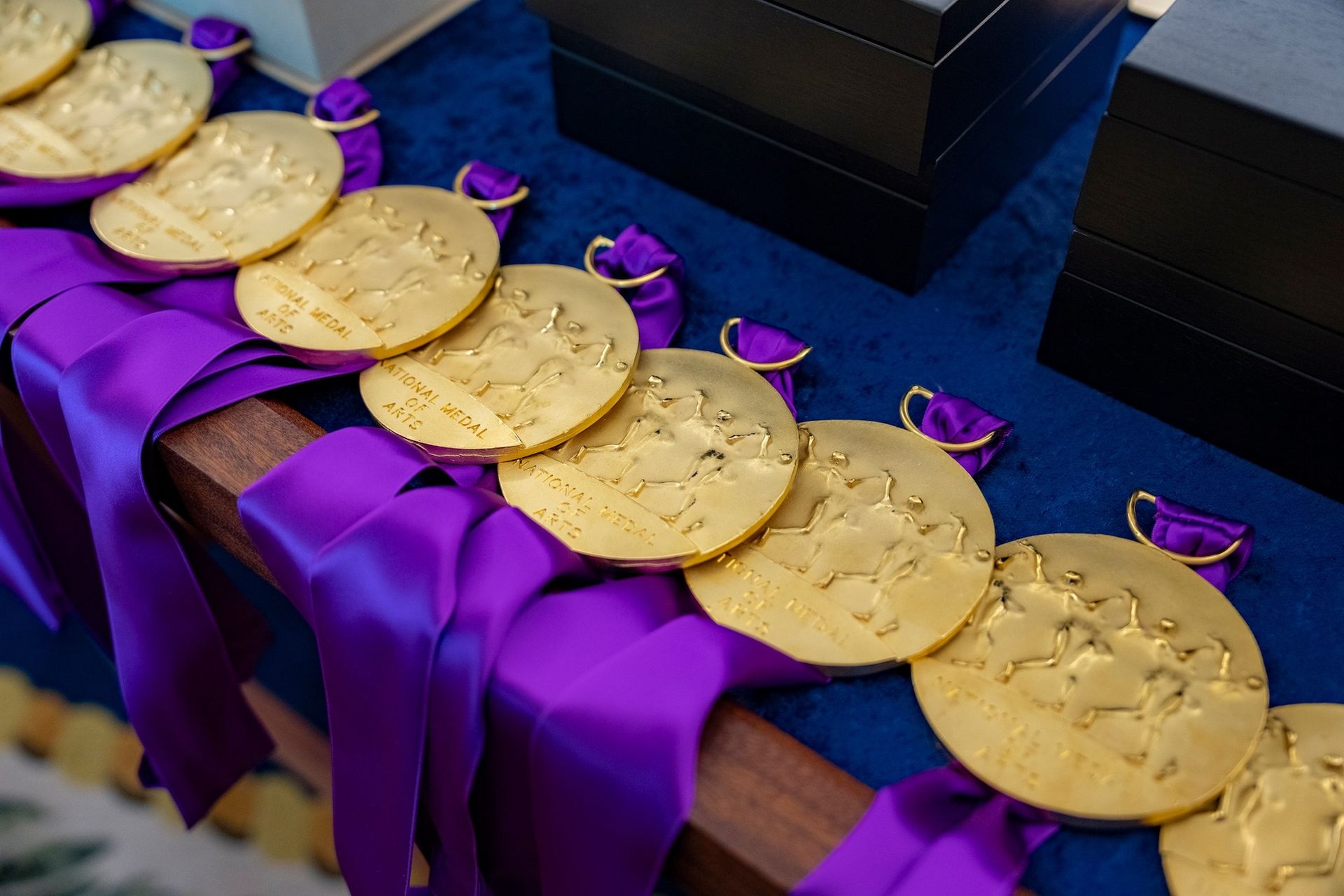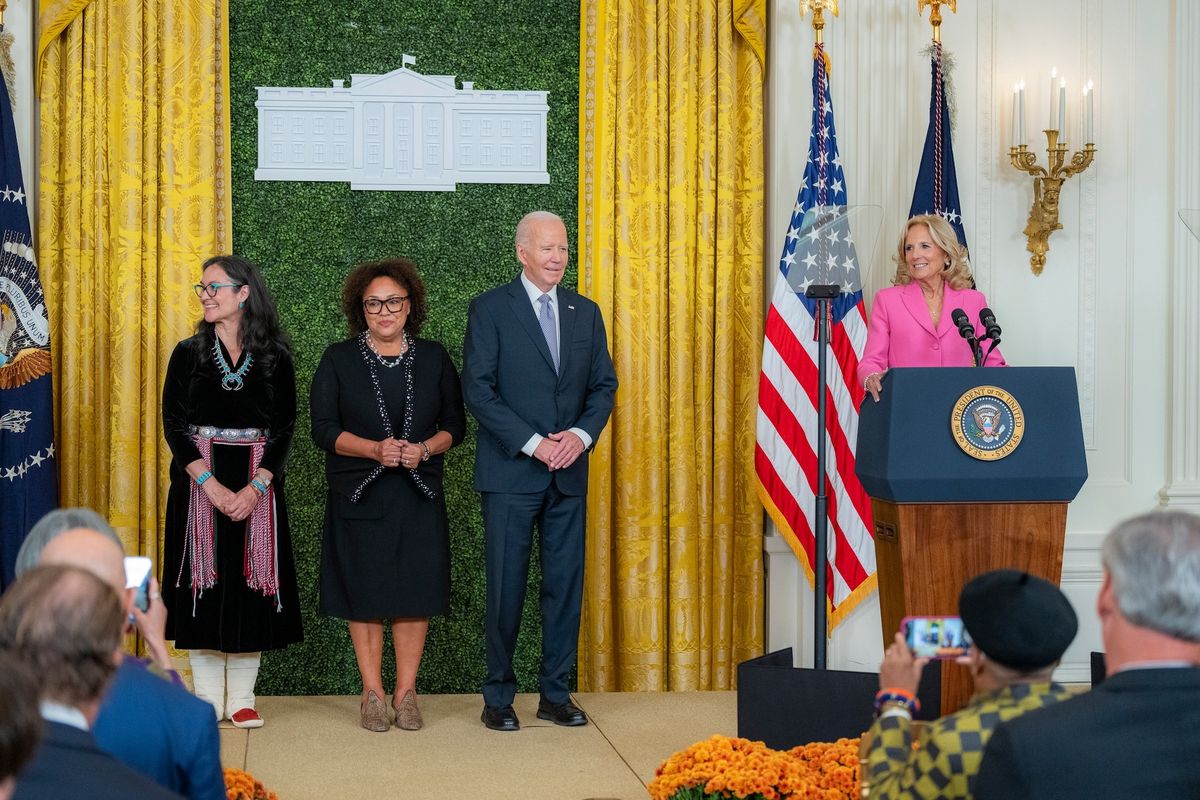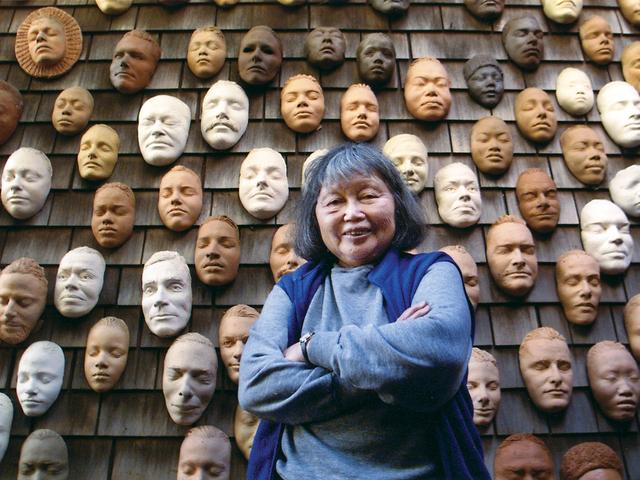US President Joe Biden recognised more than 20 artists, musicians and other creatives in a ceremony at the White House on Monday (21 October) with a National Medal of Arts, the highest award given to artists and art patrons by the federal government for contributions to American art.
This year’s ceremony honoured recipients of both the National Medal of Arts and National Humanities Medals for 2022 and 2023.
"With absolute courage, you combat racial stereotypes, confront ghosts of history and speak truth to power—as Jill Biden's husband, I know the power of women in this room," President Joe Biden said during a reception at the White House following the medal ceremony. "The artist's gift is a sixth sense, to imagine something that no one else can carve, paint, write, sing, dance or film until they set their vision free."
The 2023 recipients include painters Mark Bradford and Alex Katz, as well as arts patron Jo Carole Lauder, the wife of cosmetics billionaire and mega collector Ronald S. Lauder. The documentarian Ken Burns, the actor and musician Queen Latifah and the film-makers Spike Lee and Steven Spielberg were also honoured with awards, along with the late singer Selena Quintanilla, known as the "Queen of Tejano Music" even after her death in 1995.

US President Joe Biden speaks to National Medal of the Arts and National Medal of the Humanities recipients and their families at the White House on 21 October Photo courtesy the White House
Recipients of the 2022 awards included the late sculptor Ruth Asawa, who died in 2013, the artist Carrie Mae Weems and the photographers Randy A. Batista and Clyde Butcher, along with Bruce Sagan, a retired journalist and newspaper owner who has supported dance and theatre in Chicago for decades. Rapper and producer Missy Elliot, Norteño musician Leonardo “Flaco” Jimenez, actors Eva Longoria and Idina Menzel, and the ukulele player Herbert I. Ohta also received medals.
"In paintings and films and songs and scenes, poetry and history, they've uncovered the memories we didn't know we held onto and the dreams we didn't dare say out lout," First Lady Jill Biden said during the White House reception. "And they remind us of the transcendent moments of truth and beauty, and that they are not out of our reach."
Biden selected the recipients based on recommendations from the National Council on the Arts, the advisory body of the National Endowment of the Arts (NEA), according to the NEA, which manages nominations from across the US on behalf of the White House.
"Medalists, without question your dedicated work has left an indelible mark on the American landscape, enriching our nation's cultural fabric and helping support our most closely held ideals," NEA Chair Maria Rosario Jackson said during the reception. "It's through your music, your visual artwork, the stories and human emotion you've documented and composed, the characters you've brought to life in film and on stage, and through your generosity and commitment to the arts that you help us all askhard questions, imagine new possibilities and see one another's humanity."
Jackson added: "President Biden has often called artists truth-tellers, bridge-builders and change-seekers, and there's no doubt that the medallists honoured today are indeed truth-tellers, bridge-builders and change-seekers, luminaries that we now need more than ever and luminaries whose legacies of excellence endure for generations to come."
Honourees were also presented with the 2022 and 2023 National Humanities Medals. Recipients included the cartoonist Roz Chast, the poets Joy Harjo and Juan Felipe Herrera, and the southern Appalachian media company and education centre Appalshop. Several important arts funders were also among the National Humanities Medals recipients, including the philanthropist Wallis Annenberg, the Mellon Foundation and the recently election president of the National Gallery of Art's board of trustees, Darren Walker.

National Medals of the Arts Photo courtesy the White House
The National Medal of Arts was first established by Congress in 1984. past recipients include the artists Georgia O'Keeffe, Willem de Kooning, Isamu Noguchi, James Turrell, Maya Lin, Robert Rauschenberg, Jack Whitten, Roy Lichtenstein, Ellsworth Kelly and Judith Baca.
Several recipients throughout the medal's history have publicly refused the award. The conductor Leonard Bernstein declined the medal in 1989 to protest the federal government revoking a grant to stage an art show about Aids in New York, and in 1997 the poet Adrienne Rich rejected the award, saying she was “against a government where so much power is concentrated in so few hands”. Lyricist Stephen Sondheim turned down the award in 1992, calling the NEA “a victim of its own and others' political infighting … and a symbol of censorship and repression rather than encouragement and support”.



